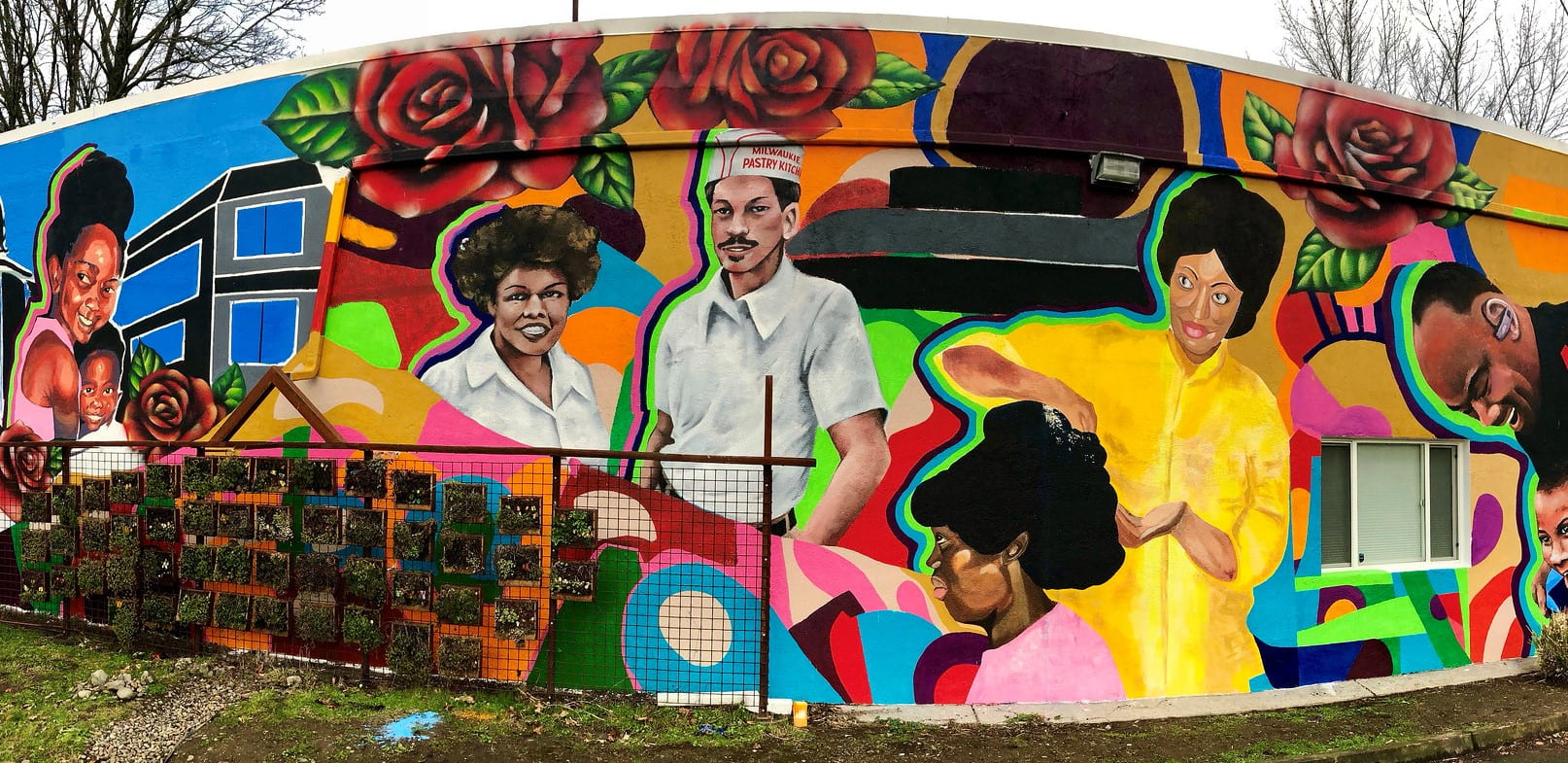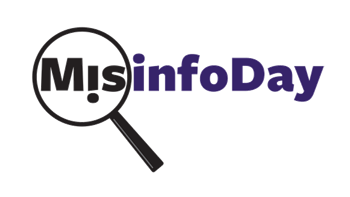This is a web version of the Center for an Informed Public’s News & Insights newsletter for January 2021, which was sent out on Jan. 29. Check out our newsletter archives. Not signed up to received the CIP’s newsletter? Register here.
Why communities need to think of misinformation as more than just a falsehood
In “Community Approaches to Misinformation,” the fourth and final in a series of virtual lectures jointy presented by the University of Washington‘s Information School and Center for an Informed Public, Chris Coward and Jason Young shared research insights about how misinformation impacts the social and political wellbeing of communities and ways to leverage partnerships within those communities as part of the solution.
(Top image: A mural in the Albina neighborhood of Northeast Portland, Oregon by wiredforlego via Flickr / CC BY-NC 2.0)
- ATTENTION TEACHERS AND LIBRARIANS: Our virtual Misinfo Day 2021 is just a few weeks away. Join us on March 18. // LEARN MORE
- NEWS: Read the CIP’s 2020 Year in Review report. // READ THE REPORT
- WORK WITH THE CIP: We’re seeking our next cohort of postdoctoral fellows. // LEARN MORE
SPOTLIGHT
CIP to explore misinformation in Vietnamese-American communities through new research project
CIP postdoctoral fellow Rachel Moran and UW iSchool PhD student Sarah Nguyễn recently received funding from George Washington University‘s Institute for Data, Democracy & Politics for a new project, tentatively titled “Sending News Back Home: Analyzing the Spread of Misinformation Between Vietnam and Diasporic Communities Around the 2020 U.S. Elections,” which will examine misinformation in Vietnamese-American communities.
(Photo of a neighborhood welcome sign in Seattle’s Little Saigon by Sounder Bruce via Flickr / CC BY-NC 2.0)
RESEARCH NOTES
CIP partners with SSRC’s MediaWell initative, Harvard’s Shorenstein Center for ‘Teaching Disinfo Studies in Higher Ed’ virtual workshop
The Social Science Research Council‘s MediaWell initiative, Harvard University’s Shorenstein Center and the University of Washington’s Center for an Informed Public will host a “Teaching Disinfo Studies in Higher Ed” virtual workshop (via Zoom) on March 19. The workshop, facilitated by Shorenstein Center research director Joan Donovan and UW HCDE associate professor and CIP co-founder Kate Starbird will look at the most effective ways to communicate findings, nuances and uncertainties with teaching disinformation studies to undergraduate audiences. Applications to attend the workshop are due by Feb. 15 at 5 p.m. EST / 2 p.m. PST.
Learn more about the workshop’s eligibility and selection criteria …
The February edition of the journal Emotion, Space and Society features a paper, “Disinformation as the weaponization of cruel optimism: A critical intervention in misinformation studies,” written by CIP research fellow Jason Young, a senior research scientist at the Technology & Social Change Group at the UW iSchool. According to the paper’s abstract, Young “argues that scholars of emotion and affect should play a stronger role within misinformation studies, providing theoretical frameworks that help to highlight the structural and social aspects of misinformation, to integrate work across disciplines and to guard against overtly techno-solutionist interventions in misinformation.”
CIP IN THE NEWS
Since the Center for an Informed Public officially launched December 2019, our researchers have been regularly interviewed, quoted or otherwise featured in various local, regional and national news outlets, livestreams and podcasts. Recent highlights include:
- The Seattle Times wrote about a recently posted preprint paper co-authored by UW iSchool PhD student Prerna Juneja and CIP faculty member and iSchool assistant professor Tanu Mitra that found that “Amazon’s search algorithm boosts books promoting false claims about vaccines over those that debunk health misinformation.” The paper, has been peer reviewed and is scheduled to be presented at the 2021 ACM CHI Virtual Conference on Human Factors in Computing Systems in May, was also featured in VentureBeat. [The Seattle Times; VentureBeat]
- Following the Jan. 6 attack on the U.S. Capitol, CIP cofounder and HCDE associate professor Kate Starbird was interviewed or otherwise featured numerous times by news organizations about dis- and misinformation and actions taken by social media platforms against accounts promoting violence and conspiracy theories. “We’re going to see less opportunity to radicalize new people” on mainstream platforms, Starbird told The Associated Press. “But for those who are already radicalized, or already down the rabbit hole with conspiracy theories, this might not make a difference if the places they go become echo chambers.” Starbird was also featured in articles and news segments from National Public Radio, KING5-TV in Seattle, The New York Times, Roll Call, Business Insider, CNET and The Missoulian. [AP; NPR; KING5; The New York Times; Roll Call; Business Insider; CNET; The Missoulian]
- In an interview with MIT Technology Review about vaccine misinformation, CIP postdoctoral fellow Kolina Koltai said that “[h]ospitals, health-care professionals, and the general public need to be conscious that misinformation about vaccines, and people using their own stories as misinformation, is not something that’s going to go away anytime soon.” Koltai, who studies the amplification of vaccine misinformation on social media, has also been featured in recent interviews in The Guardian, National Public Radio and Minnesota Public Radio. [MIT Tech Review, The Guardian, NPR, MPR]
- CIP cofounder Ryan Calo, a UW School of Law professor, co-wrote an op/ed in the Los Angeles Times with Woodrow Hartzog of Northeastern University that discusses “several ways lawmakers and the public might move to hold [social media] platforms more accountable for building and maintaining an environment they know to be dangerous.” [Los Angeles Times]
- In an interview with KXLY-TV in Spokane, CIP director and UW iSchool associate professor Jevin West discussed the impacts of vaccine misinformation. “We can almost see direct evidence of the effect of misinformation on people’s health and it affects all of us because if we don’t get enough people vaccinated, we’re going to have to keep closing down our businesses and we’re going to have to keep closing down the life we all want to return to,” he said. West was also interviewed by KUOW Public Radio‘s Bill Radke about the deplatforming of then-President Donald Trump and online speech. [KXLY; KUOW]








